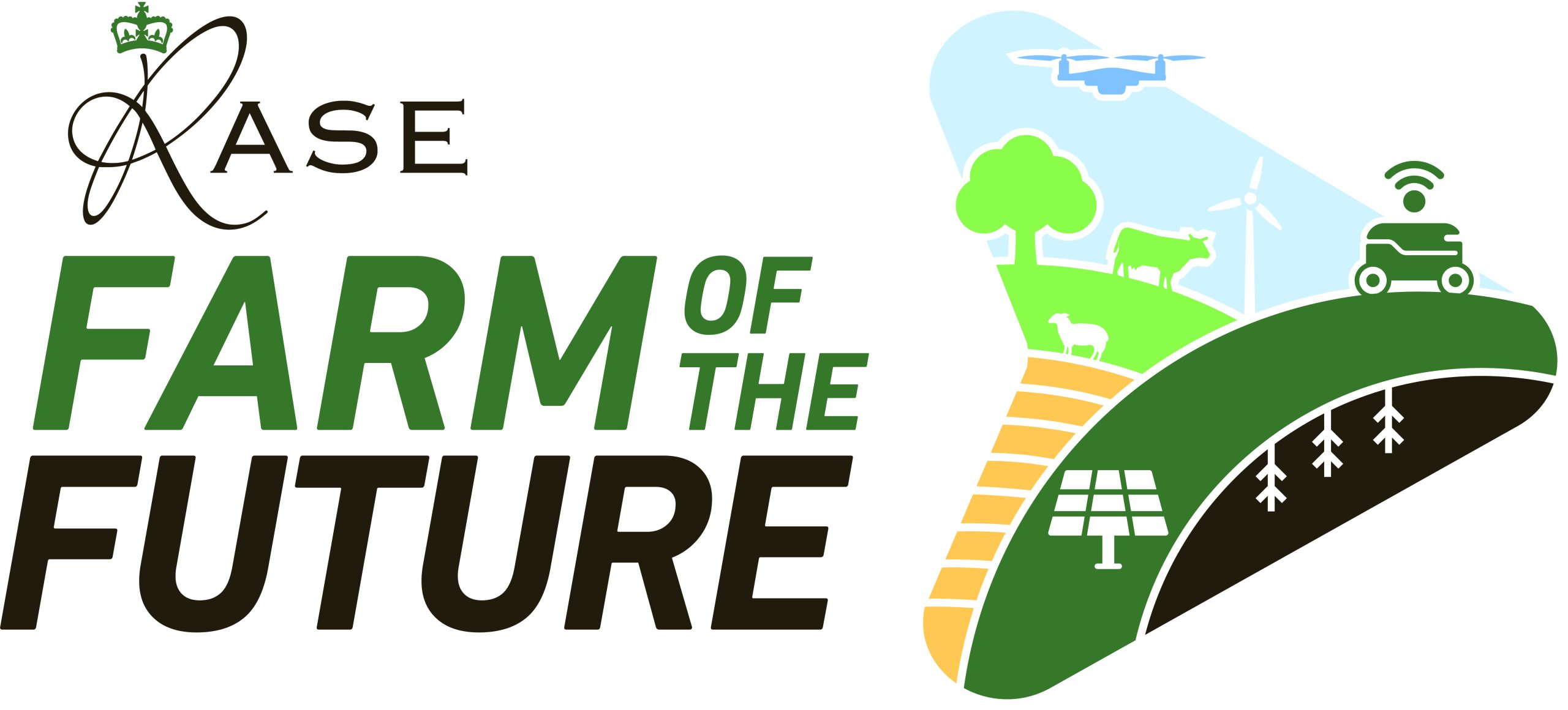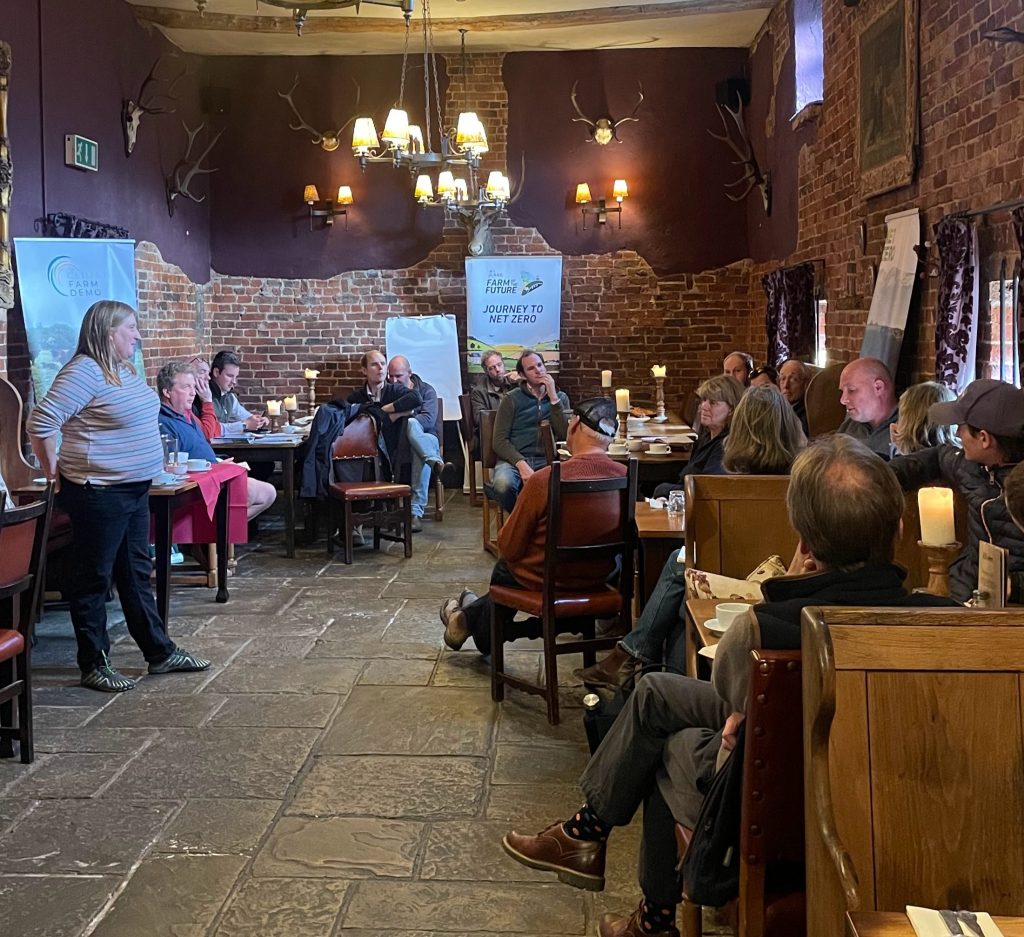In October 2024, RASE and Innovation for Agriculture held a soil and compost workshop at Norton Court Farm in Gloucestershire. Debbie Wilkins runs the 950 acre farm, which has a mix of beef and dairy cattle, and arable. She is trying to support many natural systems while still being a productive farmer, implementing measures to restore biodiversity, improve soil health and manage flooding naturally.
The day centred around Debbie’s research project with the Royal Agricultural University (RAU) looking into the potential of a slurry free dairy farm. To achieve this, Debbie, alongside RAU students and researchers, has been investigating making bokashi with her farmyard manure, which is then spread on her fields to support soil health and crop growth.
Know your context
One of the main themes of the day, which was strongly emphasised by Debbie in her introductory talk, was the importance of context. We should all look at what we have and where we are, and make decisions based on our farm context alone – not what we think we should be doing to keep up with our neighbour. It was agreed by many of the attendees that farming ‘over the hedge’ (always keeping half an eye on what our neighbour is doing) should be left behing, and instead we should get to know our soil type, our weather patterns, our aims, our infrastructure and have confidence to make decisions based on what we feel will suit them best.
This was supported by two farmers who knew each other well, one farming on grade 1 land and the other heavy clay. They both agreed the other had problems they wouldn’t want to face, and each soil brought its own benefits and challenges regardless of how it was categorised.
Paul Rollings from the RAU brought this into context by illustrating the vast methods that can be used to compost organic waste, and the different products that can be achieved through these methods. He explained to always start by thinking what you want to achieve from your compost, then work out which method will suit your farm’s needs and situation best, rather than jumping on bokashi, or aerobic compost just because someone has said it’s a good thing.
Compost
The day centred around bokashi compost and Debbie gave an honest account of the benefits she has gained from composting and the challenges she has faced in the process. In a relatable way, Debbie openly stated that she is on her regenerative journey. Although she may not have perfected her compost yet, she is learning a lot in the process, seeing benefits, and interested to keep exploring the topic, and she was incredibly knowledgeable about how it could work for her farm. So far, researchers and Debbie have seen first-hand that the bokashi has benefited crops, seeing in trials that maize grown in a field with added bokashi looked healthier and grew better, and differences were observed depending how the bokashi was applied. Despite this, statistically there has been little significant evidence yet to strongly support or reject the effectiveness of bokashi on soil health. It was agreed that the only way to keep learning is to get more farmers and students interested and involved in compost so that more lab and in field trials can be carried out, investigating the right compost recipes, application methods and to understand its potential benefits.
Thinking of the farm as a system
A topic that is increasingly being discussed is systems thinking, and how looking at the whole farm together can help increase resilience. At Norton Court this was especially discussed in the context of soil health and how healthy soils can lead to healthy crops. After the recent weather, looking at systems to improve flood resilience was also an important topic.
The idea of social systems for our own resilience was mentioned. Many people stated how good it was to get off farm – especially after facing a challenging few weeks – and have the opportunity to talk with others. Building this network meant that some attendees felt slightly re-energised, allowing them to approach challenges on the farm in a slightly lighter way than before, with the reassurance that there are others in a similar situation.
Especially as we face more extreme weather leading to large scale changes like rivers bursting their banks more frequently, thinking about all local farms and farmers as one system becomes increasingly important, as one farmer alone cannot overcome these larger problems. It is important to acknowledge the many systems at work on a farm, from the microscopic ecosystems in soil to the connections between farms in a landscape. It is important that we consciously connect these systems together, to build resilience in at every scale.

